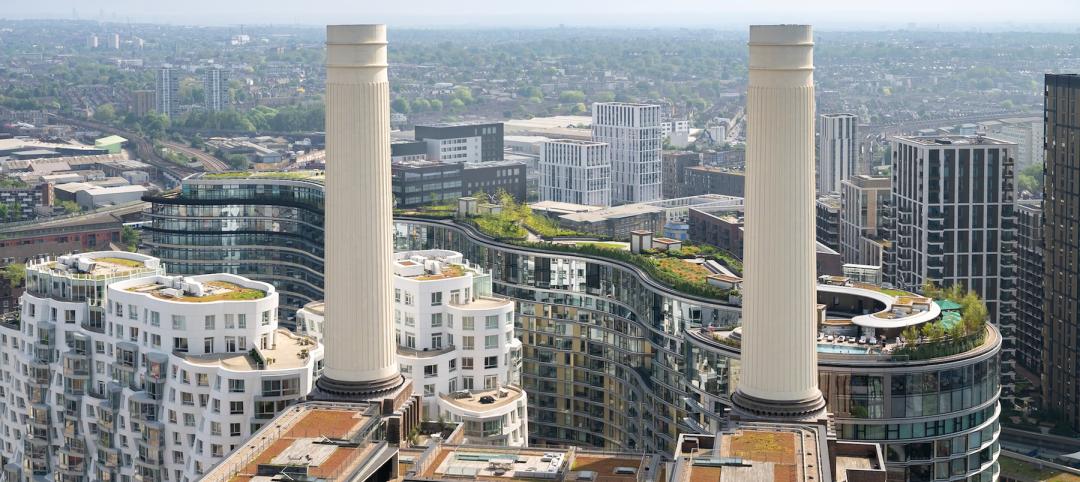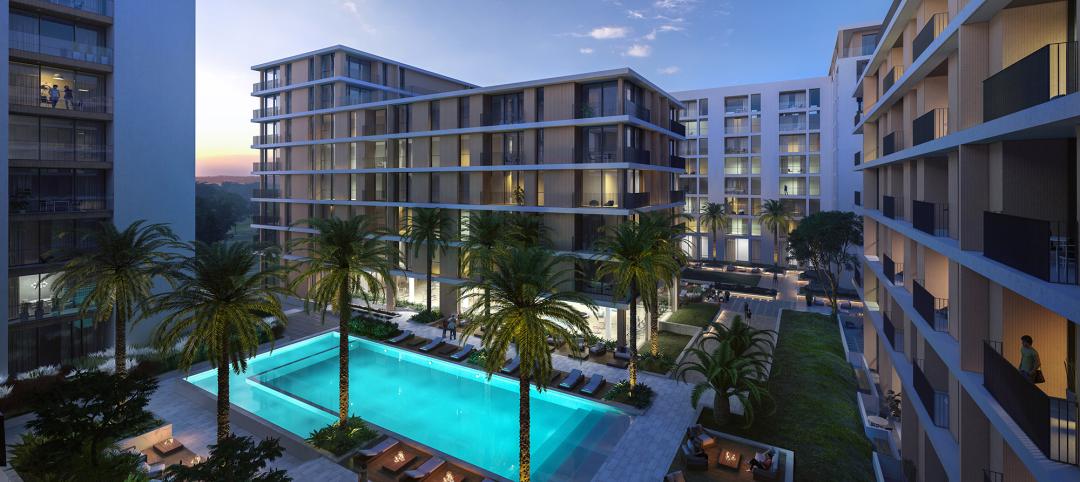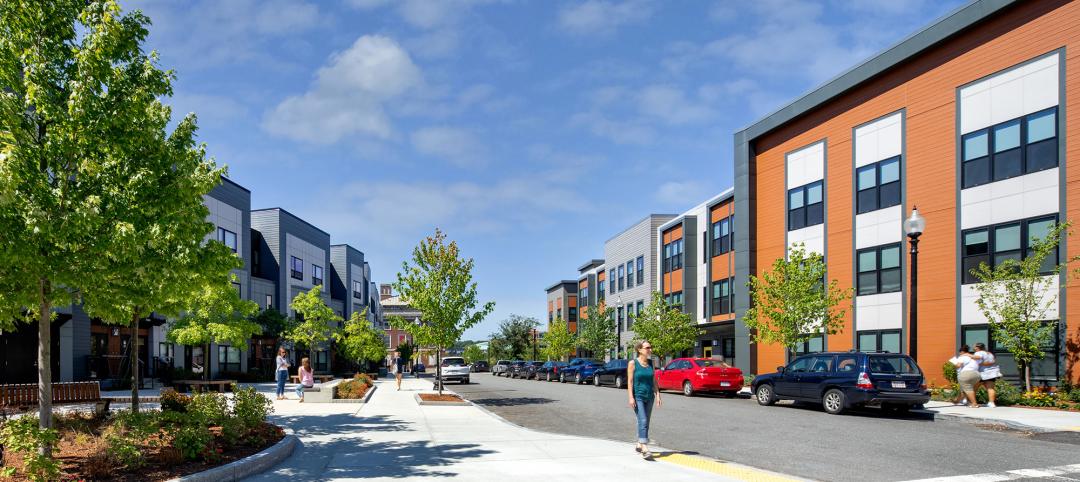Built by Thomas Edison in 1913, the Thomas Edison Invention Factory in West Orange, N.J., served as a manufacturing operation where Edison employees produced storage batteries used in light delivery vehicles, automobiles, railroad signals, industrial applications and mining equipment. Operations in the factory ended in 1965, and the site is now undergoing a major transformation to become Edison Village.
Edison Village, is the largest non-waterfront adaptive reuse project in the state of New Jersey, is wrapping up Phase I of its redevelopment. Phase I includes the creation of 334 rental units (including 34 one- and two-bedroom new construction homes), 18,400 sf of retail space, and a 650-space parking structure.
The 100-year-old Edison Lofts building was completely renovated and reconstructed and features 300 studio, one-, two-, and three-bedroom market-rate residences that range in size from 590 sf to 1,500 sf. The renovation and reconstruction of the building takes advantage of the 14- to 16-foot ceiling heights and the 10-foot replica replacement windows to provide abundant natural light.
See Also: New Jersey office building will undergo ‘live-work-play’ renovation
The Mews at Edison Lofts comprises the 34 new construction homes over 18,000 sf of retail space. These homes range from 796 sf to 1,336 sf and include designer kitchens with granite countertops, stainless steel appliances, and wood detailing throughout. Monthly rents for these residences start at $2,100.
Amenities for all Edison Lofts residents include a fitness center, an indoor pool, bike storage, a media/screening room, a business center, a private dining room, concierge service, covered parking, and a dog wash. Green spaces and a rooftop indoor/outdoor lounge are also included. The retail component, The Shoppes at Edison Lofts, will feature restaurants and cafe-style concepts and an interior plaza with a cascading fountain.
Phase II of the project will see the construction of 230 for-sale townhouses and infrastructure improvements such as new roads, sidewalks, lighting, and landscaping. Prism Capital Partners is the project’s developer. Minno & Was Architects & Planners is the architect.
Related Stories
Adaptive Reuse | Jul 12, 2024
Detroit’s Michigan Central Station, centerpiece of innovation hub, opens
The recently opened Michigan Central Station in Detroit is the centerpiece of a 30-acre technology and cultural hub that will include development of urban transportation solutions. The six-year adaptive reuse project of the 640,000 sf historic station, created by the same architect as New York’s Grand Central Station, is the latest sign of a reinvigorating Detroit.
MFPRO+ News | Jun 24, 2024
‘Yes in God’s Backyard’ movement could create more affordable housing
The so-called “Yes in God’s Backyard” (YIGBY) movement, where houses of worship convert their properties to housing, could help alleviate the serious housing crisis affecting many communities around the country.
Multifamily Housing | Jun 14, 2024
AEC inspections are the key to financially viable office to residential adaptive reuse projects
About a year ago our industry was abuzz with an idea that seemed like a one-shot miracle cure for both the shockingly high rate of office vacancies and the worsening housing shortage. The seemingly simple idea of converting empty office buildings to multifamily residential seemed like an easy and elegant solution. However, in the intervening months we’ve seen only a handful of these conversions, despite near universal enthusiasm for the concept.
Adaptive Reuse | Jun 13, 2024
4 ways to transform old buildings into modern assets
As cities grow, their office inventories remain largely stagnant. Yet despite changes to the market—including the impact of hybrid work—opportunities still exist. Enter: “Midlife Metamorphosis.”
Adaptive Reuse | Jun 6, 2024
Latest phase of London redevelopment completes two new buildings
Developers are creating a neighborhood for 25,000 residents and workers.
MFPRO+ News | Jun 3, 2024
New York’s office to residential conversion program draws interest from 64 owners
New York City’s Office Conversion Accelerator Program has been contacted by the owners of 64 commercial buildings interested in converting their properties to residential use.
Adaptive Reuse | May 15, 2024
Modular adaptive reuse of parking structure grants future flexibility
The shift away from excessive parking requirements aligns with a broader movement, encouraging development of more sustainable and affordable housing.
K-12 Schools | May 13, 2024
S.M.A.R.T. campus combines 3 schools on one site
From the start of the design process for Santa Clara Unified School District’s new preK-12 campus, discussions moved beyond brick-and-mortar to focus on envisioning the future of education in Silicon Valley.
Adaptive Reuse | May 9, 2024
Hotels now account for over one-third of adaptive reuse projects
For the first time ever, hotel to apartment conversion projects have overtaken office-to-residential conversions.
MFPRO+ Special Reports | May 6, 2024
Top 10 trends in affordable housing
Among affordable housing developers today, there’s one commonality tying projects together: uncertainty. AEC firms share their latest insights and philosophies on the future of affordable housing in BD+C's 2023 Multifamily Annual Report.

















